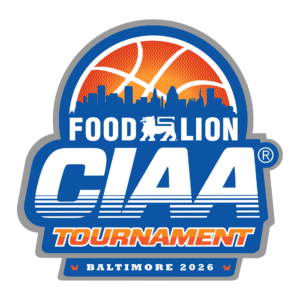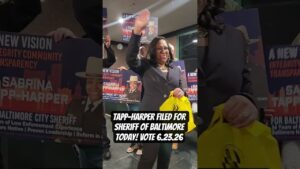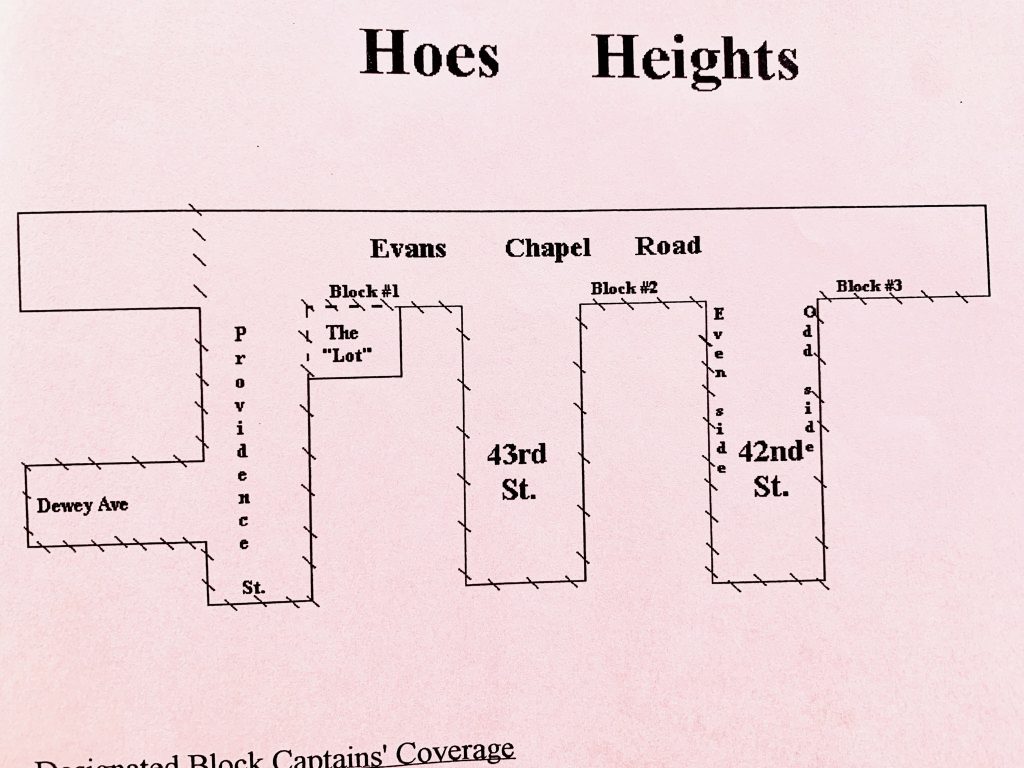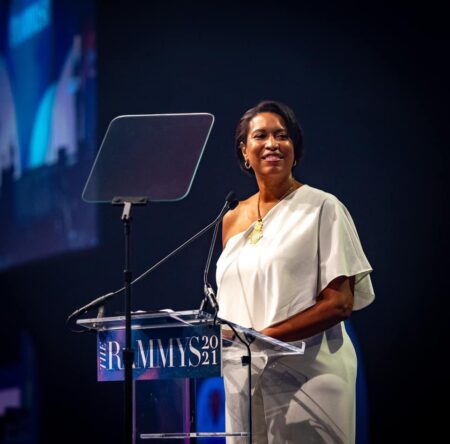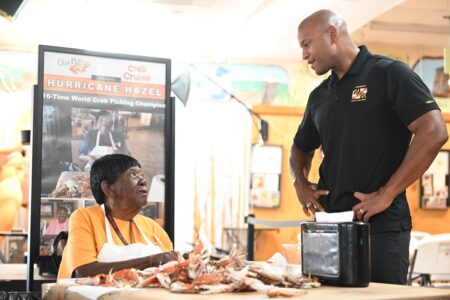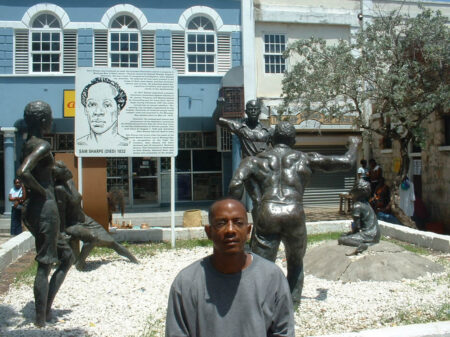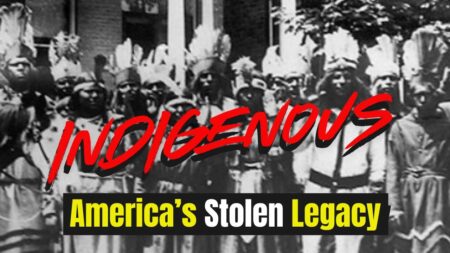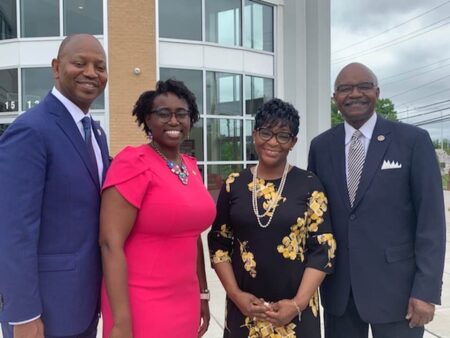By Hoes Heights Action Committee
(BALTIMORE – August 29, 2022) – Since the renovation of the beautiful and historic Roland Water Tower (RWT), there have been many meetings shepherded by the Roland Park Community Foundation and its committees to discuss potential design options to enhance the green space surrounding the renovated monument. Unfortunately, the process that led to the permanent road closure of the tower advocated for and now being sought for final design approval by agencies of the City of Baltimore including CHAP (Baltimore City Commission for Historical and Architectural Preservation) has not allowed for the voices of those most affected by this closure to be heard. This design process was conceived in the early days of the 2009 Greater Roland Park Master Plan and has intentionally excluded and misrepresented the community most affected by this closure: Hoes Heights, a neighborhood established by a formerly enslaved man and one of the oldest black historical communities in Baltimore.
Today, the Roland Park Community Foundation (RPCF), chaired by Mary Page Michel, and its subgroup the Roland Water Tower Steering Committee, have ignored the concerns of Hoes Heights residents and misrepresented our community in its design presentations to the Maryland Historic Trust (MHT), the Baltimore City for Historical and Architectural Preservation (CHAP), City of Baltimore Department of Transportation (DOT), and the City of Baltimore Department of Public Works (DPW). Indeed, RPCF hired Unknown Studios, a landscape design studio, to create several options for a redesign of the green space surrounding the Roland Water Tower. Although Unknown Studios initially created a design with full road access, the final design that is now being shepherded through (without buy-in from the majority of Hoes Heights residents) will permanently shut down the traffic circle around the Tower that for over 100 years and until it’s recent closure has served as a safe gateway in and out of our community.
Much has progressed in Hoes Heights over the last century. Living in this still predominantly Black community are now the sons, daughters, cousins, and grandchildren of its original residents, many of whom were the nannies, housekeepers, gardeners, and chauffeurs to Roland Park and beyond – communities from which our Black ancestors were excluded by deeds, custom, and means.
We are perplexed as to why the Roland Park Community Foundation has actively promoted and advocated for a plan that will harm and exclude our historically black neighborhood, which depends on the road access around the Tower for travel to and from points outside our community. The Roland Water Tower was first built in 1904 to provide water to the growing community, and soon afterward became a transportation hub as a trolley/bus turnaround, as well as a green space for the families of Hoes Heights. For well over a century since then, these homes have been passed down through generations, all full of pride and love for their neighborhood.
This all began to change behind the scenes when in 2009 the Roland Park Civic League claimed the Water Tower as a key feature in their Greater Roland Park Master Plan. Then, as now, our community was excluded from the process in a direct and meaningful way.
The so-called “support” for this vision was manipulated then as it is being done today.
The 113 homes in our community now include elderly people, front-line workers, and professionals tending to daily normal needs and imperatives. During the spring of 2022, members of our community conducted a door-to-door survey independent of RPCF that shows that over 86% of the residents surveyed do not want to lose access to our community’s gateway at the Tower. Our survey was conducted within the historic borders of Hoes Heights, and its findings were presented to the Roland Water Tower Steering Committee by the 2 Hoes Heights representatives in the group. The data from the survey was, however, ignored by the Steering Committee. Instead, the Steering Committee decided to move forth with their “pocket park” design that eliminates road access to our community. Their counterargument is that they will instead implement various access/egress traffic calming measures to solve our community’s problem of access. We believe that these options are not only inconvenient but also dangerous measures to the traffic safety of our residents and guests.
Today, what began as a much-needed restoration of the iconic landmark tower has been expanded by Roland Park Community Foundation. The current permanent design outright overrides the historical transportation infrastructure and community gateway to our beloved community and instead promotes a pocket park of greenspace that blocks our nearly 100-year access to our Hoe’s Heights homes. Although the Roland Park Community Foundation’s (RPCF) papers and presentations seem to demonstrate our community’s support for this redesign, this is not the case. In all the meetings and outreach to this point, even as far back as the 2009 Greater Roland Park Master Plan, it seems that there had been “listening” to our views, but little prioritization or inclusion of these perspectives, needs, and traditions—particularly our road access. We have systematically been excluded from this process throughout every step. with
We believe that if the public and our public officials truly understood the historical roots of our community and the egregious impact upon our daily lives in the closing of the road surrounding the water tower, they would be in agreement with our wishes to City Officials to keep the road permanently open.
We are asking for the help of the Mayor, the City Council, and other city Officials with the following actions:
· to hear our voices and know the history of this community
· Return the important Roland Park Water Tower road design back to full road access:
● Request a meeting at which HHAC members are present that discloses the status update of all City of Baltimore agencies (DOT, DGS, DPW) involved in the redesign of the Roland Water Tower.
Sincerely,
Hoes Heights Action Committee:
Teri Logan
Quianna Cooke
Eleanor Matthews
Joanne Kent
Kitsy Lee
Hana Morford
Betsy Heeney


